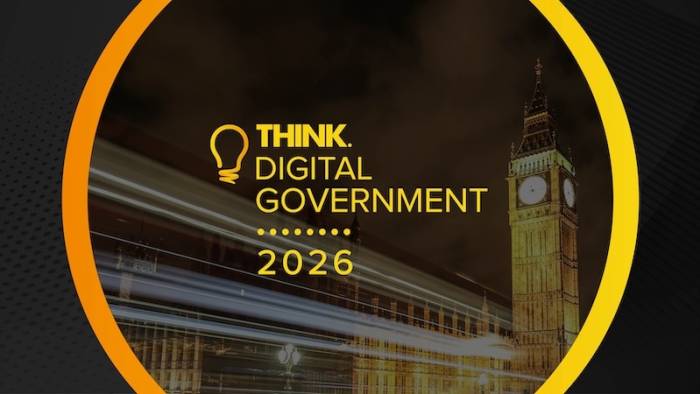Did you enjoy school?
Yes, I did. I have always enjoyed learning and exploring new ideas. My studies in computer engineering and computer science gave me a strong technical foundation, and my master’s work in industrial engineering introduced me to business strategy, operations research, and portfolio management. That combination shaped how I think about solving problems by connecting technology with practical business outcomes. I believe continuous learning is essential to stay relevant, especially in a field that evolves so quickly. For me, education never stops. It is about staying curious, questioning assumptions, and applying new knowledge to create impact.
What qualifications do you have?

I have a PhD in Computer Science and over 25 years of experience leading innovation across data, AI, and cloud technologies. As chief technology officer at Precisely, I’ve helped guide the company through major technology shifts and built strategies that advance trusted data and AI. I’ve also led more than 20 acquisitions and global expansion initiatives that shaped the company’s growth.
Beyond my executive role, I serve on several advisory boards focused on AI, analytics, and responsible innovation, and I’m passionate about creating more inclusive pathways in technology. I am driven by the opportunity to shape how organisations use data and AI responsibly while advancing inclusive innovation at scale.
Has your career path been a smooth transition, a rocky road or a combination of both?
A combination of both. My career has included pivotal transitions, such as moving from academia to the private sector, from leading R&D teams to managing full business operations as general manager, and later shaping global strategy as CTO. Each step brought new challenges and opportunities to learn. I have led through growth, M&A integrations, and large-scale transformations, and every experience has expanded my perspective. What has helped most is staying curious, embracing change, and focusing on creating lasting value for customers, teams, and the business.
What specific challenges do you see women facing in the industry?
Representation remains one of the biggest challenges, especially in senior leadership and board roles where women are still significantly underrepresented. During periods of transformation, such as mergers or organisational change, diversity can decline even as teams grow. I have seen this firsthand during a major integration, when female representation dropped despite an expanded pool of talent. Partnering with leaders across sales, HR, and engineering, we worked to embed diversity into hiring and culture, ensuring inclusion remained part of how we scaled.
I co-founded our Women in Technology programme and launched initiatives that created visibility, mentorship, and recognition for women across technical and leadership roles. These programmes have strengthened our global talent pipeline and advanced representation in technical leadership.
The real challenge is sustaining inclusion as companies evolve. It cannot depend on one or two visible role models; it has to be embedded in how an organisation operates every day. Progress becomes real when diversity is viewed as a shared responsibility and a shared benefit across all levels of leadership.
What is the best career advice you can give to others?
Skill up and step in. This is an extraordinary time to create impact, whatever your role may be. Keep learning, explore emerging technologies, and take initiative. Every career will be influenced by AI, so curiosity and adaptability matter more than ever. Connect your work to real business outcomes and understand the value you bring. Always make space for others, advocate for them, share what you know, and help your community grow alongside you.
If you had to pick one mentor that had the biggest influence on you, who would it be?
I have had many role models, starting with my parents and the strong, resilient women in my family who showed me what perseverance looks like. Throughout my career, I have been fortunate to learn from exceptional leaders and colleagues who shaped how I think about leadership and purpose. I also mentor many people and continue to learn from my mentees. Mentorship, for me, is about shared growth and perspective.
From where do you draw inspiration?
I draw inspiration from impact. My career has been shaped by being at the forefront of major technology shifts, whether in big data, cloud, or AI. What keeps me inspired is the ability to anticipate what is coming next, understand its potential value for customers, and turn innovation into measurable outcomes.
Over the next decade, I believe generative AI and agentic AI will transform every industry. It will change how we design, make decisions, and serve customers. But AI reflects the people who create it, which means our responsibility is to build it with integrity, diversity, and inclusion. At its core. We need a wide range of perspectives to ensure technology serves people and not the other way around. I am inspired by the possibilities ahead and by the many voices helping shape this transformation with empathy, curiosity, and purpose.
If you liked this content…
What is the biggest challenge you have faced to date?
Every challenge has brought an opportunity to learn, adapt, and grow. The most defining moments in my career have come during periods of major change, such as integrating acquisitions, scaling teams globally, and navigating technology disruptions. Leading innovation while maintaining focus and stability requires balance, clear communication, and trust.
As organisations grow, culture and readiness become as important as strategy. Building alignment across teams and creating an environment that can adapt to change are essential for sustainable growth. I have learned that success depends not only on the technology or the plan but on preparing people and systems to evolve with it.
What qualities do you feel make a good leader?
I believe good leadership begins with curiosity and the ability to listen deeply. I focus on making thoughtful decisions grounded in data and experience, bringing clarity to complex situations, and staying centred on what creates lasting value. Strong leadership also means empowering others to lead and building a culture where people can challenge ideas safely, collaborate openly, and adapt through change. For me, leadership is about guiding with purpose and building confidence in both the people and the mission.
From a work viewpoint, what have the last 12 months been like?
For many of our enterprise customers, this year marked a move from experimenting with AI to deploying it at scale. I have seen how critical a trusted data foundation is for success. Data integrity determines whether AI delivers reliable results. Much of my focus has been on working with strategic customers and partnering to address these challenges, ensuring trusted data that enables their AI initiatives.
It has also been a year of bringing new ideas to life. We have transitioned the generative and agentic AI capabilities we incubated last year into production across our product suite, working closely with customers to validate and refine them. As the pace of change accelerates, I continue to look ahead to the emerging challenges our customers face and how we can address them with trust and innovation at the centre.
What would you say are the biggest tech-based challenges we face today?
The biggest challenge today is building trust in AI. Research shows that while 60 per cent of organisations say AI is a key influence on their data programmes, only 12 per cent believe their data is of sufficient quality and accessibility. That gap between ambition and readiness is where most challenges begin.
Trust also depends on context. Many models are trained on the same public data, which can be unreliable or incomplete. Companies may have strong internal data, but without external context or third-party enrichment, their insights remain limited. Missing a geography, demographic, or customer segment in analytics can introduce bias and weaken business outcomes.
Creating trusted AI requires accurate, complete, and contextual data. As AI becomes central to every business process, organisations that invest in data integrity will build systems that are both fair and highly differentiated.
What can be done to encourage more women into the industry?
It starts with access and awareness. Girls need early exposure to technology and to the possibilities it creates. As AI transforms every field, digital and data literacy are becoming as essential as language skills. Giving young women the confidence to explore these areas early can make all the difference. I have seen how early encouragement can change trajectories. This is why I have been an advocate for STEM education and support nonprofit initiatives that invest in underrepresented groups. Opening doors to learning and providing visible examples of leadership can inspire next generation of women in technology.
Once they enter the workforce, visibility and advocacy matter. It’s not only about women supporting women but about everyone, including men and leaders at all levels, recognising the value of diverse perspectives. Women bring strong interdisciplinary skills that are essential in today’s digital economy, and organisations that harness this diversity will achieve better outcomes. Creating an environment where women can contribute fully and visibly is not just the right thing to do, it’s a business imperative for the digital age.
Give us a fact about you that most other people wouldn’t know.
I love teaching. It has always been one of the most rewarding ways to learn. When you are surrounded by curious minds asking thoughtful questions, you see ideas from new perspectives. I have taught executive-level courses, and that experience shaped how I communicate complex topics in business settings. It taught me to understand the audience, focus on what matters most, and connect ideas to real-world outcomes. Teaching continues to remind me that learning never stops. I extend that impact through my advisory and board roles, where I help organisations advance responsible and inclusive innovation.











